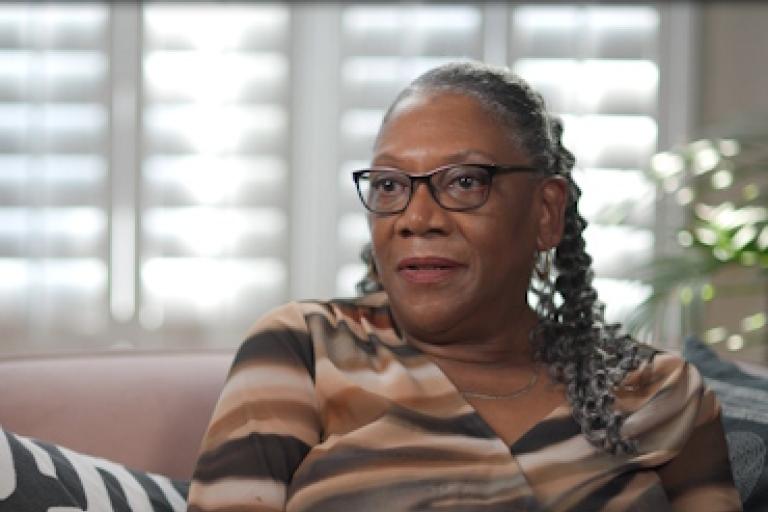Interested in fostering?
Submit your contact details using the button below and a member of the team will be in touch.
You can also call us on 0300 1312797.
Eligibility
Most people wonder “could I foster?” The chances are you can, as long as you meet basic eligibility criteria:
- over 21 years of age
- have a spare room
- have some experience of childcare or working with young people, for example, volunteering or babysitting
- generally fit and healthy
- have time to support a child's needs, for example, go to school plays, sports days, attend meetings with professionals in health social care and education
- live in or within 20 miles of Bracknell, Crowthorne, Sandhurst, Binfield, Winkfield or Warfield
You will not be able to foster if you have a criminal conviction involving a child.
Personality
As a Bracknell Forest foster carer you would be caring for children who need nurturing and access to different life experiences. You’ll need patience, understanding and resilience to create the right environment and relationship for your young person to thrive.
Would you say you are:
- kind and caring?
- a good listener?
- a problem solver?
- curious about why children do, say or act in the way that they do?
- willing to speak up for your young people in meetings with other professionals?
- able to endure the pain of treading on Lego® bricks and play endless rounds of UNO?
If this sounds like you, get in touch to request a call back to talk to one of our team.
Real questions from real people
About you
The average age of foster carers in the UK is between 35 and 60. However, new research says that more people aged 30-65 are looking into fostering.
As long as you are generally healthy, there is no age limit to being a foster carer.
We welcome applications from people with disabilities.
There are lots of different types of fostering which can suit people of all abilities.
There is no handbook for the parenting role.
From time to time, you will feel that you have got something wrong, but it’s the way you role model putting things right which will show your young person that it’s OK to make mistakes.
A stable and secure home are vitally important for children and young people.
You can certainly apply and attend training, but we would not progress your application until you were settled for around 6 months or so.
Yes. We want to hear from households from all backgrounds regardless of gender, marital status, race, religion or belief, sexual orientation or any legally protected characteristic.
Yes. Life goes on! However, additional checks would be put in place particularly if you decide to move in together.
Smokers or vapers can only be approved to care for children aged 5 and above and only if they do not smoke near the child or in the family home.
Foster children cannot share with birth children so will need their own room. If you have older children, you should make sure they know and understand your decision. Adult children living at home must be willing to be assessed and have certain checks undertaken.
If you need support, one of our family workers can also help you explain fostering to your family.
Yes! Family friendly pets are even welcomed as they can be a huge sense of support for children.
The exception are dog breeds listed on the Dangerous Dogs Act.
Renting is not a barrier to fostering, you should just seek permission from your landlord.
Endings are normal and natural, and you will be supported if a child needs to moves on.
Experience tells us that foster children never forget the care, support and experiences you have given them.
The fostering task is a partnership between us, you and the child in your care.
Good, honest communication is key, and we aim to give non-judgemental, therapeutic support to help you and your foster child.
Not all offences exclude you from fostering. But you need to tell us as early in your journey with us so we can offer help and advice.
We would not be able to progress an application from you if you or anyone in your family has an offence against a child. All enquiries are treated in the strictest of confidence.
About children
At Bracknell Forest Fostering, we believe that “behaviour is communication”.
Your curiosity will help your young person understand what’s going on for them. Your patience and resilience will help them gradually figure out solutions for themselves.
In addition to regular training, a team of specialists work alongside us to help you with therapeutic parenting.
All carers are approved for children aged 0 to 18 but you can certainly request an age preference.
We’ll give you as much information as we can about each child before you make a decision.
You will find that as your skills and experience grow you may choose different age groups.
The child’s parents have a right to know where their child is living.
There may be reasons for a child not to see their family, and in certain circumstances your details will not be shared.
Foster carers ask this question because they worry parents will turn up at their door. This is highly unlikely as birth parents will want to show how responsible they are and would not put this at risk.
Foster carers are likely to meet with the birth family of the children they foster through contact.
Contact helps keep up a relationship between the child and their parents. Contact arrangements are usually made between the social worker team representing you, the child and the family and happen on a regular basis.
You will help the child prepare for contact, take them to agreed locations and offer them emotional support when they return home to you.
Unless the plan is for a long-term placement, the decision to move a child away from things and people that familiar to them with would need great consideration.
Coming into foster care is a huge change, so staying at their school where they have existing relationships with teachers, friends, clubs and activities will be vital for their stability and continuity.
Foster carers do not have parental responsibility and cannot make decisions about the child.
However, they will have something called ‘delegated authority’ to make day to day decisions about the care of their foster child.
This sets out the things that the parents agree and do not agree to, and these will all be set out for you.
Finances and timings
In most cases the fostering allowance does not affect any other benefits you may be claiming through the local authority.
Yes. Many parents with children work. You’ll need to make sure you can commit to sports days, parents’ evenings, professional meetings and ongoing training.
Take a look at the financial support page to get an idea of the allowances you get to support your fostering role.
The assessment process will also look into how fostering might impact your finances and if it is something you can afford to do.
The assessment process takes around 6 to 8 months.



